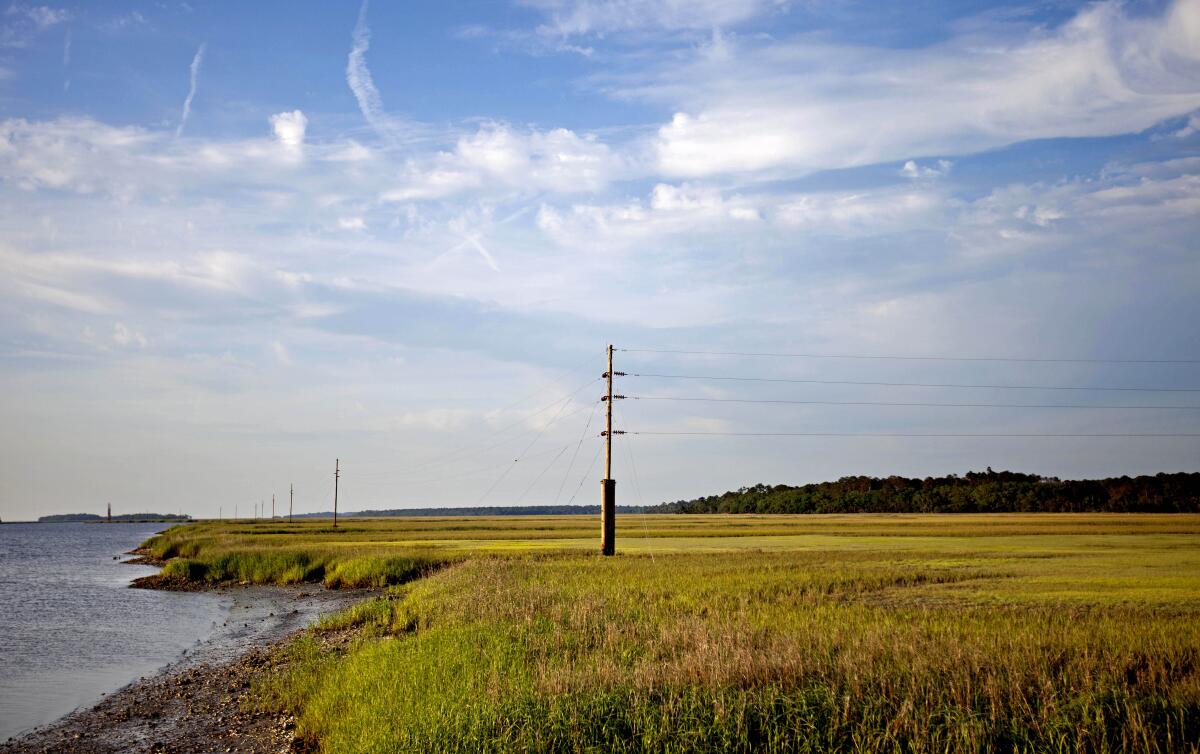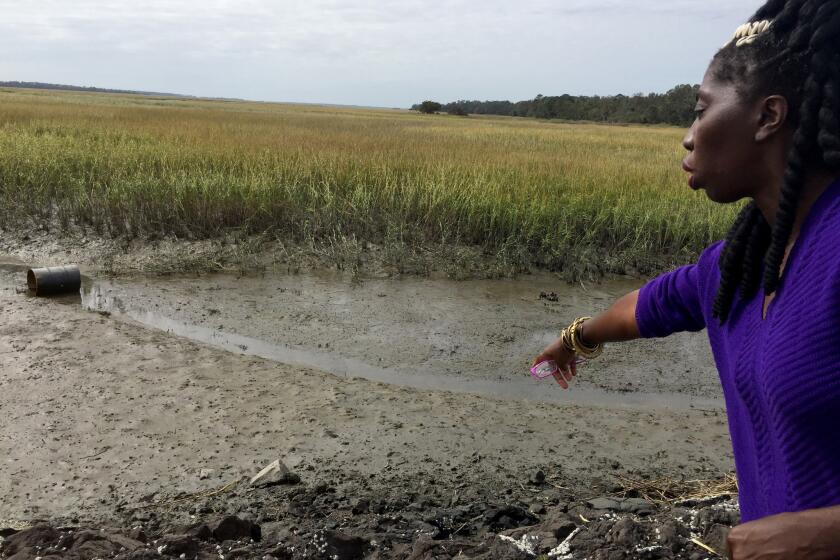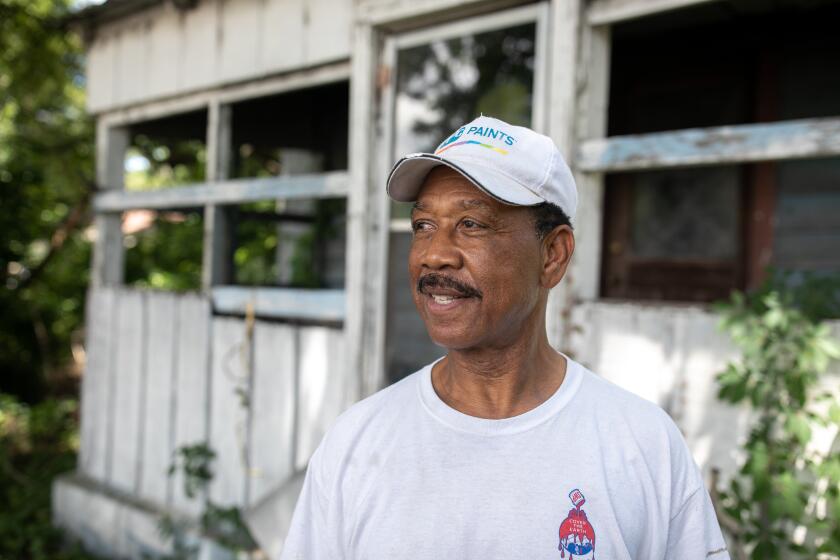Georgia slave descendants submit signatures to fight zoning changes they say threaten their homes

- Share via
DARIEN, Ga. — Residents of one of the South’s last Gullah-Geechee communities of Black slave descendants submitted signatures Tuesday, hoping to force a referendum on whether to reverse zoning changes that they fear will make them sell their land.
Elected commissioners in Georgia’s McIntosh County voted in September to weaken zoning restrictions that for decades helped protect Black residents of Hogg Hummock, a group of modest homes along dirt roads on largely unspoiled Sapelo Island. About 30 to 50 Black residents still live in Hogg Hummock, which was founded by formerly enslaved people who had worked on a plantation.
Hogg Hummock residents and their supporters submitted a petition at the McIntosh County courthouse in Darien for a referendum to repeal the zoning changes. The petition had more than 2,300 signatures — hundreds more than needed to put the issue before voters in an election, said Josiah “Jazz” Watts, a Hogg Hummock descendant and homeowner.
When the remnants of Hurricane Matthew threatened the coastal lowlands of South Carolina, 335,000 people fled for higher ground.
“We know there is still a long way to go, but man, this is significant,” Watts said at a news conference after the submission.
The signatures need to be reviewed and certified, but organizers expect the referendum to go before McIntosh County voters in September or October, said Megan Desrosiers, executive director of the conservation group One Hundred Miles.
An email to the county manager was not immediately returned.
The zoning changes doubled the size of houses allowed in Hogg Hummock. Residents say that will lead to property tax increases that they won’t be able to afford, possibly forcing them to sell land their families have held for generations.
County officials have argued the smaller size limit was not enough to accommodate a whole family. They said that limit also proved impossible to enforce.
The debate over reparations for slavery is getting new attention through the 2020 presidential race. For the descendants of slaves in South Carolina, it’s personal.
Hogg Hummock landowners are also fighting the rezoning in court. A judge dismissed the original lawsuit on technical grounds, but it has since been amended and refiled.
Located about 60 miles south of Savannah, Sapelo Island remains separated from the mainland and reachable only by boat. Since 1976, the state of Georgia has owned most of its 30 square miles of largely unspoiled wilderness. Hogg Hummock, also known as Hog Hammock, sits on less than a square mile.
Gullah-Geechee communities are scattered along the Southeast coast from North Carolina to Florida, where they have endured since their enslaved ancestors were freed by the Civil War. Scholars say these people long separated from the mainland retained much of their African heritage, from their unique dialect to skills and crafts such as cast-net fishing and weaving baskets.
Hogg Hummock earned a place in 1996 on the National Register of Historic Places, the official list of the United States’ treasured historic sites. But for protections to preserve the community, residents depend on the local government in McIntosh County, where 65% of the 11,100 residents are white.
More to Read
Sign up for Essential California
The most important California stories and recommendations in your inbox every morning.
You may occasionally receive promotional content from the Los Angeles Times.












